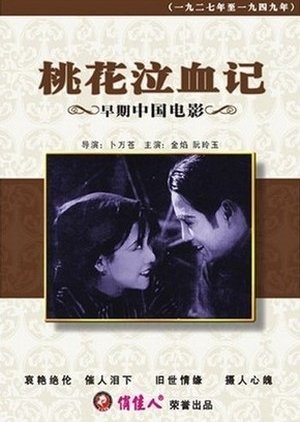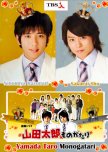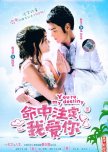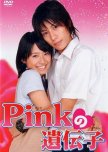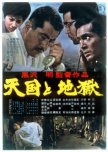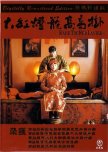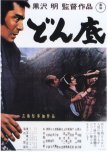
Questa recensione può contenere spoiler
"Like teardrops, the petals from the peach tree fall..."
The Peach Girl was a tragic tale of forbidden love between the classes. Ruan Ling Yu and Jin Yan made for a beautiful and tormented couple in this classic silent film.Miss Lim (Ruan) and her parents worked on a large property. When Lim was a baby her mother planted a peach tree saying it was a symbol of her child's life. If the little girl was good it would blossom. Lim and the owner's son, Teh En, became friends despite his mother's disapproval. Even at the tender age of five, love blossomed along with the peach tree. Teh En moved away, later returning as a young man. He and Lim reconnected and their love continued. His mother still did not approve. Teh set Lim up in an apartment and told her his mother was going to let them marry. This was a bold-faced lie because his mother was arranging another marriage for him. When Lim's father found out what was going on and that Lim was pregnant, he confronted Teh En's mother who offered to pay them off. Insulted, Lim's father refused the money and was fired for his efforts.
"A man's life might be easily altered by circumstances." Teh En begs his mother to let him marry Lim and she responds by locking him up in their mansion. This was more in mind than physically because she was half his size and constantly shaking from her opium addiction. He could have easily pushed past her at any time. Teh's mom is worried about their "social dignity" more so than their familial integrity. Teh believes that "wealth or poverty does not come between love" but in real life that isn't always true, especially when descending from wealth into poverty and for a man who never worked a day in his life.
While Teh's mom tries setting him up with other girls Lim has their daughter. By this time Lim's mother has died and her father has been blinded. Melodrama thy name is Peach Girl. Lim's landlady attempts to pimp her out to an old man but upon seeing the peach blossoms she determines to stay strong.
"Sickness invariably visits the poor and helpless" especially in a Chinese silent films. Lim lays dying and Teh finally gains enough courage to push past his overly dramatic mother to run and stumble and run and stumble and run and stumble to the woman he loves. With Lim's last breath Teh promises to live to take care of their child and stand up to his mother.
The intertitles were beautifully decorated and had dialogue in English and Mandarin. In the version I saw there were also simpler English translations beneath for some intertitles. The print I watched had no music. I've read that silentfilm.org has added music on a DVD they released. By this time in Hollywood most movies, with the exception of Charlie Chaplin movies, had sound. Possibly due to access issues, lack of theatrical infrastructure, and Japan invading Manchuria in 1931, the Chinese were slower to add sound. Many frames were badly faded but did not take away from my experience.
Ruan Ling Yu's expressive face and the timeless story adapted well to silent film making the story easy to follow. This was not the best performance I've seen by Ling Yu, at times it was hampered by the thick white theatrical makeup. Without the gift of spoken words, she still conveyed a wide range of emotion brilliantly emoted through her facial expressions and body language.
Peach Girl's story at this time in history feels overly familiar, but in 1931 might have felt fresher. Perhaps due to the hard times, the plight of an abandoned woman often left with a child and living in poverty was a common theme in many of the surviving silent films I've watched. More often than not the woman was criticized by society but not the filmmaker as the film called out for audience sympathy. In this film, the director and writer highlighted the discriminatory gap between the classes. "Class distinction does not exist among children." The lesson was nearly always learned after a high price was paid.
The Peach Girl was entertaining and worth checking out if you enjoy older films and Ruan Ling Yu's performances. The alternate title, Peach Blossom Weeps Tears of Blood might have been more accurate for this film. "Observe how teardrops are petals of the peach tree…the peach tree speaks of love, of sorrow, and of tears."
5/11/23
Questa recensione ti è stata utile?

